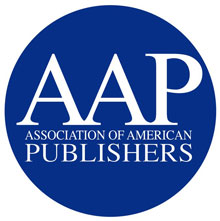April 23, 2024
Publishers, Authors and Booksellers File Amicus Brief Supporting Plaintiffs in Suit Challenging Iowa Censorship Law

On April 19, 2024, the Association of American Publishers, joined by the American Booksellers for Free Expression, Authors Guild, Inc., Comic Book Legal Defense Fund, Educational Book and Media Association, Freedom to Learn Advocates, Half Price Books, Records, Magazines, Inc., Independent Book Publishers Association, National Press Photographers Association, National Writers Union and Sisters in Crime, filed an amicus brief in Iowa in support of the plaintiffs in two lawsuits, filed in November 2023, challenging provisions of SF 496, a 2023 law that violates constitutional standards by censoring books for students in a vague and overbroad fashion.
The lawsuits, Penguin Random House, LLC. v. Robbins and GLBT Youth in IA Schools, Etc. v. Reynolds, were filed in November 2023 by plaintiff groups that include publishers, renowned authors, educators, and students. The original filing by Penguin Random House has since been joined by Hachette Book Group, HarperCollins Publishers, Macmillan Publishers, Simon & Schuster and Sourcebooks. Among other problems, the law prohibits any K-12 public school in Iowa from maintaining a “library program” containing “any material with descriptions or visual depictions” of a “sex act” no matter how innocuous or brief, and with no variation for the age of the minor or consideration of the value of the work as a whole. In practice, hundreds of books have been pulled from library shelves as a result, including timeless classics by authors such as James Joyce, William Faulkner, Aldous Huxley, and Richard Wright, and award-winning books by contemporary authors such as Toni Morrison, Malinda Lo, Sapphire, John Green, Jodi Picoult, Laurie Halse Anderson, and Maya Angelou.
Amicus brief excerpts include:
- “The reach of SF 496…will have a direct impact on the ability of the wide range of writers, artists, publishers, distributors, new organizations, and retailers that amici represent to write, create, publish, produce, distribute, and sell books and literary works of all types, including materials that are scholarly, journalistic, educational, artistic, scientific, and entertaining. This will be felt certainly within the state of Iowa and with potential nationwide ramifications if this law is upheld.”
- “SF 496 provides a legal basis for eliminating a substantial portion of the history of human creativity from school library shelves.”
- “SF 496 does not take into account the work as a whole [as required by the test the Supreme Court set out in Miller/Ginsberg], a fatal flaw in the law.
- “SF 496 is unconstitutionally vague and overbroad because, among other things, it does not adequately indicate what constitutes a “description or visual depiction of a sex act” that would trigger the material as inappropriate for a minor ranging in age from 5 to 18. . . . [It] is so broad that it could include images that illustrate sensitive, historical, political, or health-related topics in a news article.”
The full amicus brief can be found here.
